Latest News
Kitchen Chat and more…
Kitchen Chat and more…
The text of the Act of Consecration of Man consists of words that are like seed kernels that are waiting to sprout sooner or later. Some of those words and sentences are promises for the future that are expressed in the form of a possibility. Sometimes the verb is even missing so that it does not become clear whether it is a wish, a petition, or reality: “Christ in you.” What does it mean? Is He in us? Or are we asking Him to dwell in us? Or are we called to give Him a dwelling place? Who is able to say of himself: Christ is in me?
“Our life is His creating life.” Has that come to manifestation in our daily life? We usually act as if our life is not His life but our own. Perhaps in a distant future, looking back from the highest standpoint, we will be able to acknowledge: Yes, our life was His creating life.
But that does not mean that we should meekly wait until that time perhaps comes. On the contrary, every day, every moment calls on us: can you make this day, this moment into His creating life? Can you even do that with the mind-numbing daily work that countless people have to perform in our time? Billions of people on earth have to work as insignificant links or as slaves of technology. When you ask them: “What are you doing it for?” the discouraging answer is usually: “I am doing it for the money.”
But also the most thankless, seemingly senseless work can make a contribution to life on earth, when we not only ask: What do you do? but also: How do you do it?
With everything we do Someone sees us—Someone Who wants to connect His creating life with every human life. His deepest longing is: I in you and you in Me. Everything we do we can do in the knowledge: I am doing it for the earth, for my brothers, for my sisters, for Him Who wants to live in us: Christ in us.
-Rev. Bastiaan Baan, November 20, 2022
The Thinking Heart
We are living in a world in which we are used to keeping everything at a distance. Admittedly, we are daily reminded of the misery of the world, but usually we don’t stop to think of it much. When we have seen the daily news we go back to the order of the day. After all, there is not much more we can do if we want to fulfill our daily obligations. The only way to bridge this distance and still be able to do something at that distance is to take the misery of the world to heart, irrespective of the fact that we can actually do so little. A master in this art was Etty Hillesum (1914-1943)* who, during the terrors of the Second World War, gave herself the task: “I want to be the thinking heart. I would wish to be the thinking heart of a whole concentration camp.” Her broken life is a witness of taking-to-heart, whereas outwardly she could do nothing for others. What do we then have left? The thinking heart.
There is a moment in the Act of Consecration of Man that asks for taking the world to heart. But usually at this culminating point of the service we are so busy with ourselves that we forget the rest of the world. After all, it is the most intimate moment when we, each for herself or himself, receive the peace. What kind of peace is that?
The Act of Consecration itself gives an answer, but we tend to forget this answer when we receive the peace of Christ. For early in the Communion, He says: “This peace with the world can be with you also…” In radical terms: His peace is not earmarked for me, but through me: for the world, with the world. In the most precious moment of the Act of Consecration of Man, if we take the suffering, battling world to heart in our thinking, this world can briefly come to rest in us and find peace.
-Rev. Bastiaan Baan, October 23, 2022.
* Etty Hillesum was a young Jewish woman in Holland who was picked up by the Nazis during World War II, spent time in the Dutch concentration camp and died in Auschwitz. She left a diary in which she recorded profound experiences.

